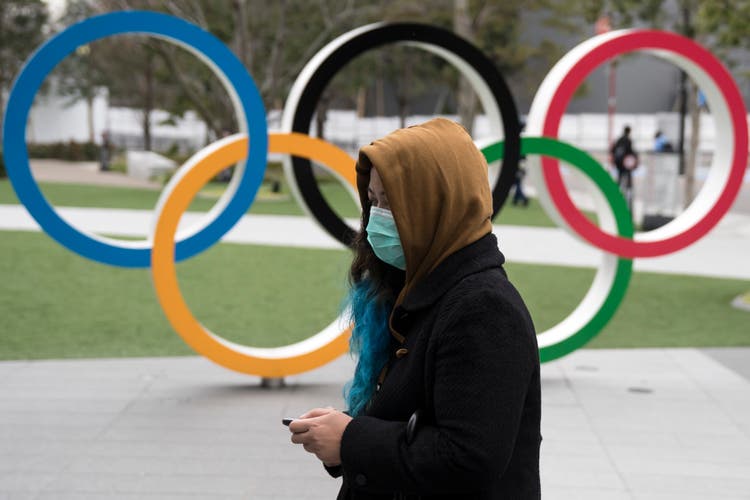
By Scott Bauer
Originally published on 18 July, 2021
At A Glance
- Tokyo’s once-anticipated economic boom from the Olympic Games could be a bust as the city prepares to host in a COVID-19 bubble with a complete ban on spectators
- On July 9, the Nikkei was at its lowest level since May 17, as a state of emergency declaration for Tokyo ahead of the Olympics accelerated a risk aversion sell-off
Every two years, cities from around the world submit bids to host the Olympic Games. This occurs seven years prior to the respective Olympics, with the winning city meeting extensive criteria to be selected for the prestigious honor.
On the most fundamental and basic level, city authorities must prove to the International Olympic Committee that hosting the Olympics is logistically possible. This means presenting existing stadiums, as well as designs for new ones, to host events. But it also means demonstrating plans for other infrastructure - including transportation, hospitality and accommodation, and security – plus everything else that goes into hosting a competition that, on average, has sold over 5 million tickets each of the past five Summer Games.
When a city is selected to host the Olympics, the honor and prestige is not the only incentive granted to them. In the seven years leading up to the Games, millions of jobs are created to meet the demand in labor needed to pull off hosting the Olympics. And then, during the Games, the average 6 million plus attendees, combined with thousands of athletes, generates billions of dollars in revenue for the city. The economic gain from increased labor and tourism is a major reason cities compete to host the Olympics.
So, what would the Olympic Games be like in a bubble with a ban on spectators? Due to the ongoing COVID-19 crisis in Japan, we need not wait long to find out, as the (delayed) 2021 Tokyo Olympics will be held exactly like that: in a COVID-19 bubble with no spectators and heavy restrictions.
Japan Outlook
The confluence of heavy media coverage and no fans has never happened for the Olympics. As such, it’s useful to look at some of Japan’s market gauges to estimate the toll an absence of fans might take.
The Nikkei finished lower for a third day in a row on July 9 as the state of emergency declaration for Tokyo ahead of the Olympics accelerated the risk aversion sell-off. As of that date, the Nikkei stood at its lowest point since May 17; however, losses may be somewhat capped due to the recent weakness of the Yen.
Additionally, the Olympics may be considered a negative for the market. But if it is managed to be held successfully without further adding to the spread of COVID-19, this may actually be a positive moving forward. It will be interesting to see the impact on Olympic sponsors as many are now running out of opportunities to recoup their Olympic investments. Expectations of Olympic revenues have been downgraded since organizers decided in March to exclude spectators from overseas, but may now see further downgrades as the complete spectator ban has now been set in place.
Missed Tourist Revenue
In 2013, Tokyo was selected by the International Olympic Committee to host the 2020 (now 2021) Summer Olympics. Coinciding with the selection was the Japanese government’s decision to relax immigration rules and welcome tourists to the country. According to a 2013 projection by the Tokyo 2020 Olympic and Paralympic Bid Committee, an estimated 920,000 spectators per day were expected to visit Tokyo during the Olympic Games. For an economy that shrank in Q1 2021, the tourist foot traffic would have been a much-welcomed source of extra revenue. It is estimated that tourists generated £2.1bn in revenue during the London 2012 Olympics. Missing out on tourist revenue will hamper Japan’s economic growth expectations, but on the bright side, the country did not have to spend as much of their budget on infrastructure as host cities normally do.
According to Statista, when Tokyo hosted the Olympic Games in 1964, Japan invested ¥1 trillion into infrastructure and development of the city. At the time, that investment translated into 3.4% of their GDP. Due to the economic growth of Japan since then, and the existing infrastructure throughout the country, Japan will have spent an estimated ¥8-10 trillion, or 1.5%-1.8% of their GDP on the 2021 Olympic Games.
Hosting the Olympic Games not only drives tourism and economy for the duration of the event, but also long after. One of the best examples of the Olympics having positive effects on a host city is with Barcelona, which had been partially closed to the rest of the world before hosting the 1992 Olympics. According to Statista, in 1990, 1.37 million tourists stayed in hotels in Barcelona. By 2000, that number had reached 3.14 million, and in 2019, 9.47 million tourists stayed in the city’s hotels.
By bringing in visitors and also being internationally televised, people from around the world learn information about the city, culture and country itself that they might not have otherwise. For a country that has seen low, and even negative, growth the last few years, hosting a fan-filled Olympics would have been a much-needed jolt to the Japanese economy.
Editor's Note: The summary bullets for this article were chosen by Seeking Alpha editors.